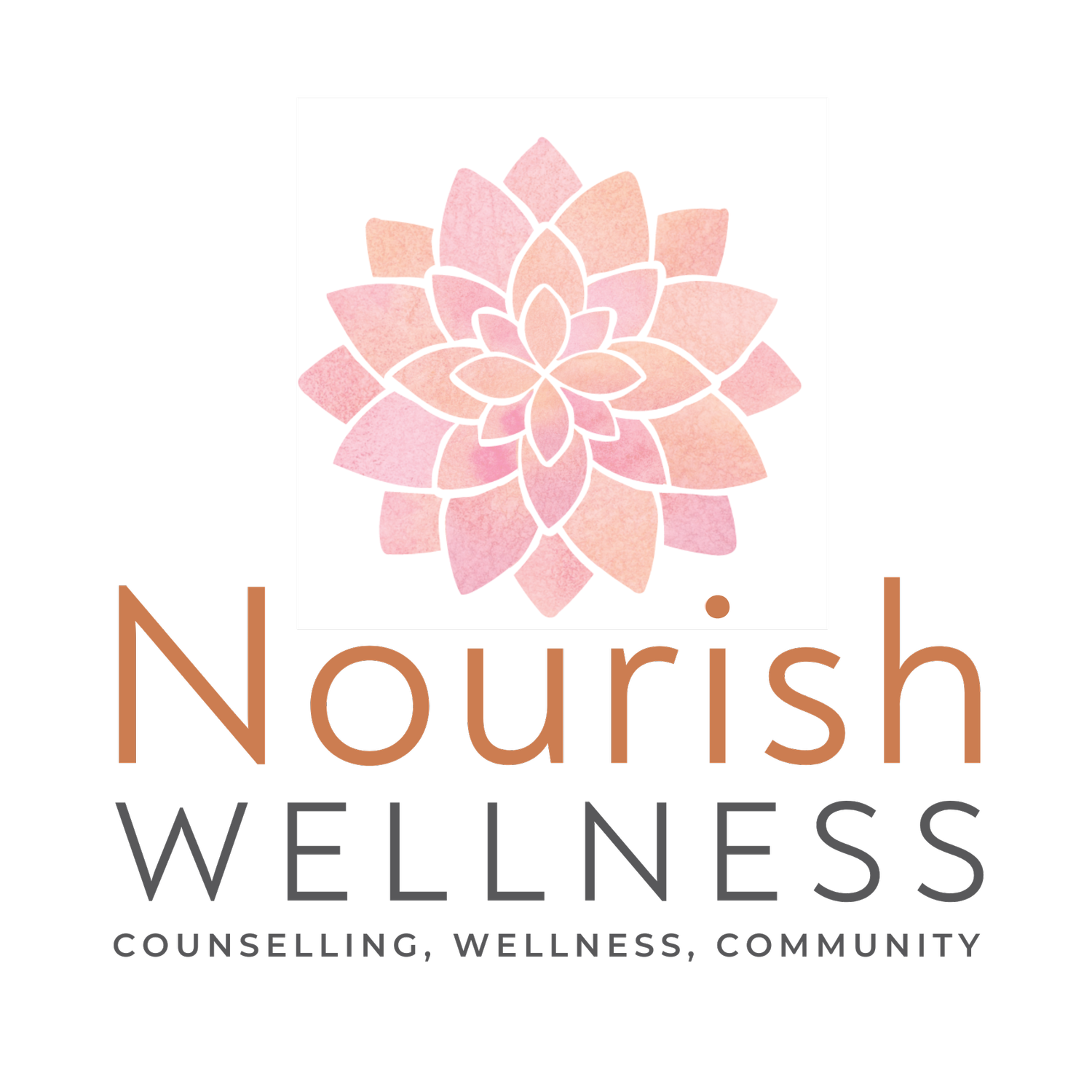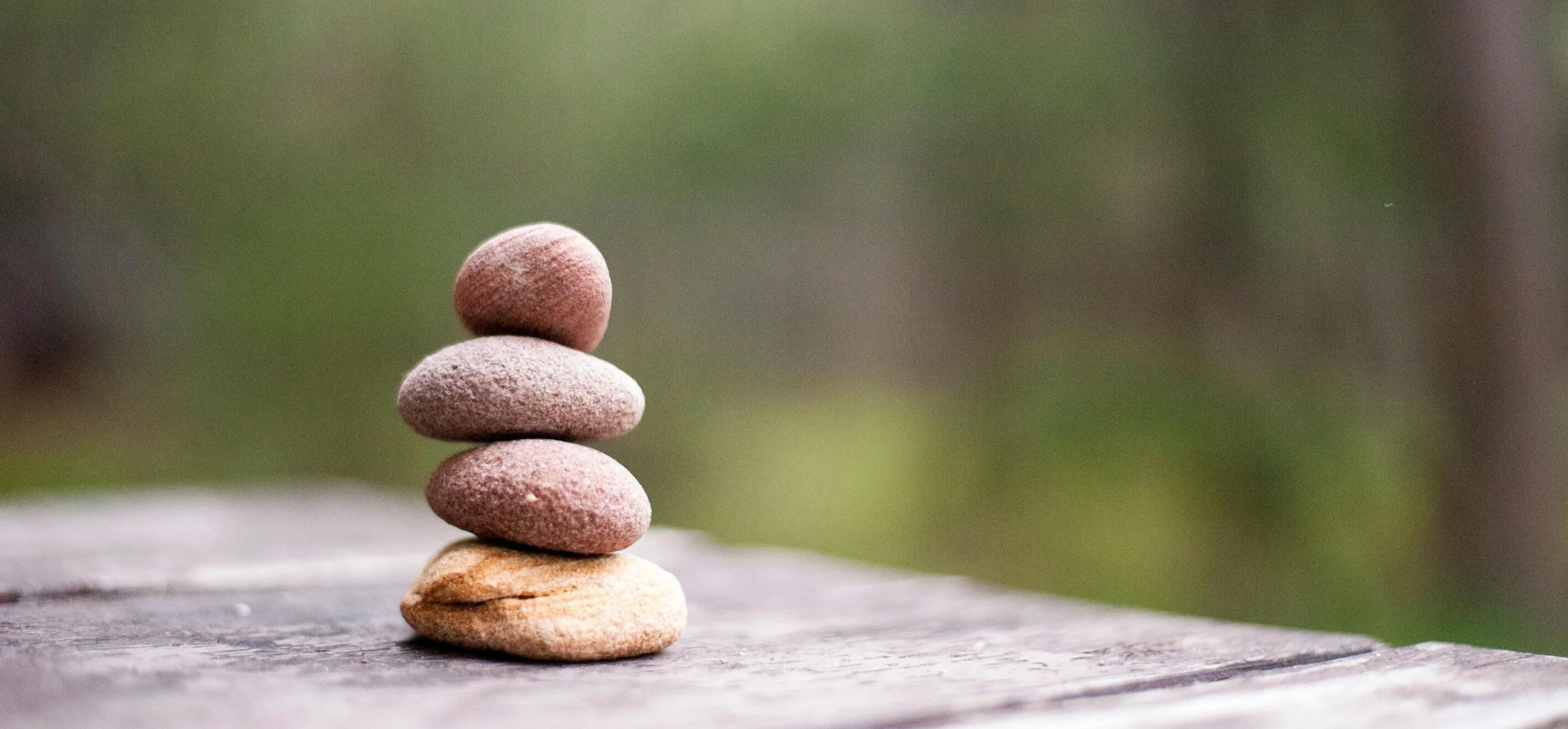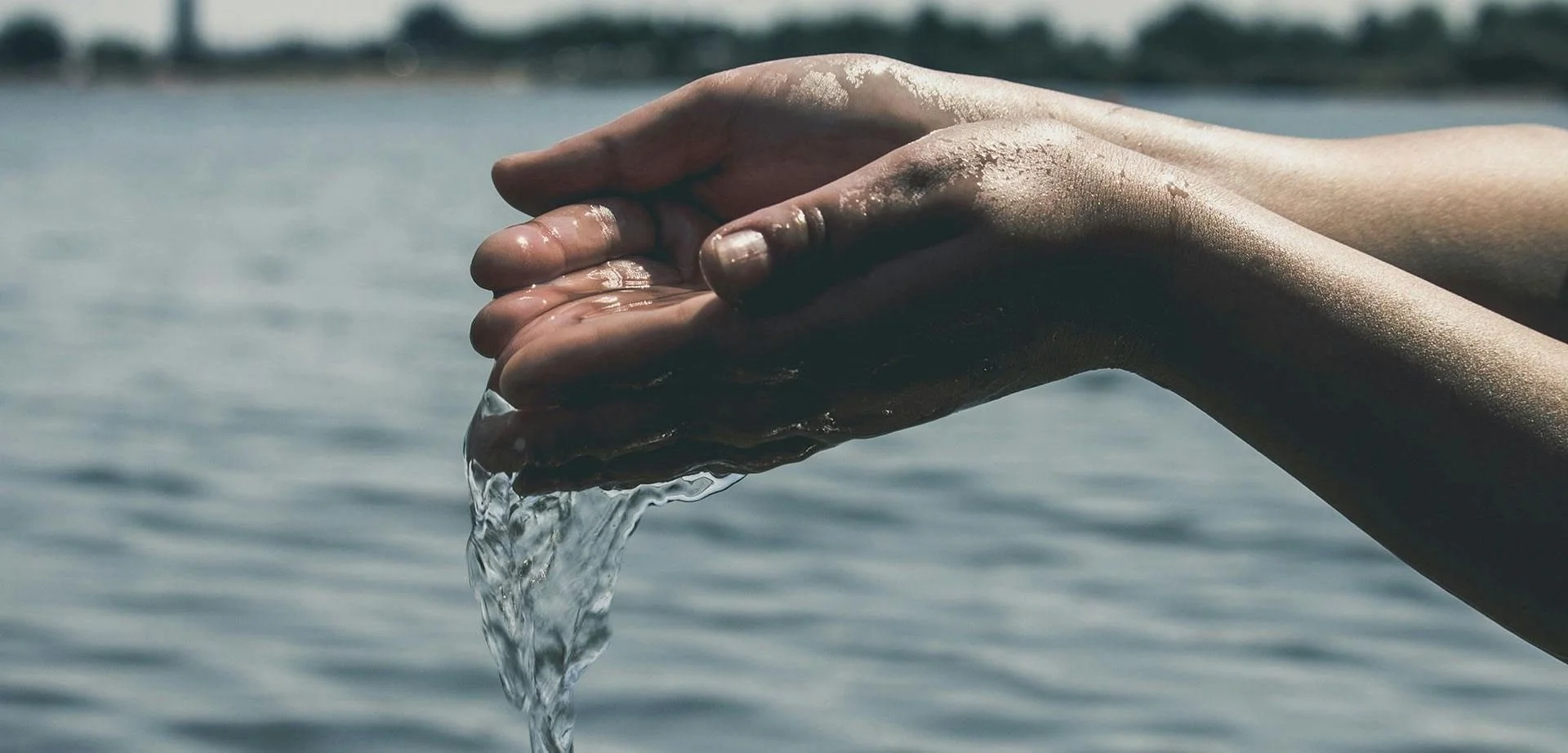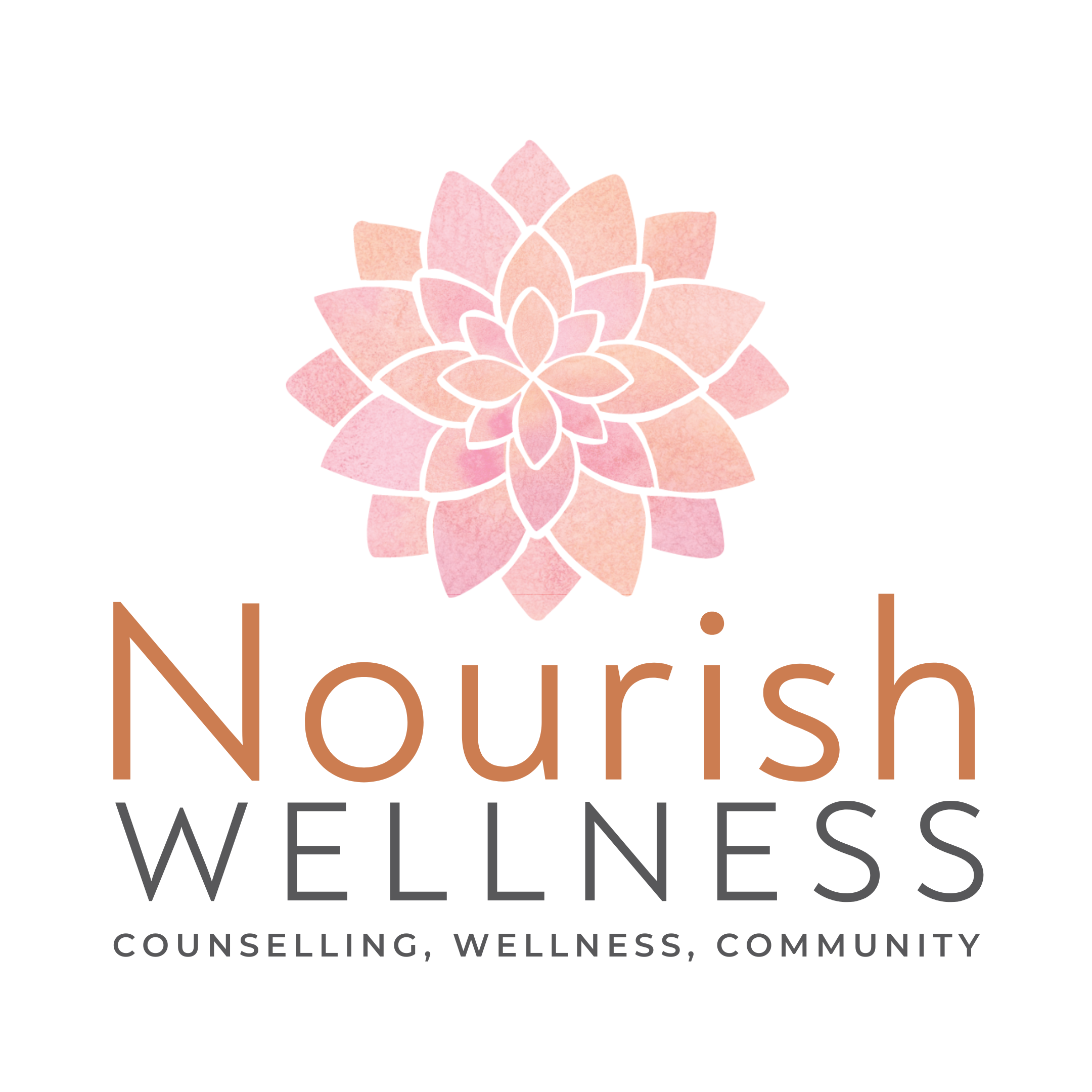Nourish Wellness January Update: Healthy Routines, Stress Management & Parenting Resources for 2025
As we step into a fresh new year, Nourish Wellness invites you to begin 2025 with intention, balance, and care. Our Comox-based collective of holistic practitioners is here to support your journey with practical tips for mental wellness, creative reflection, and parenting support. In this month’s blog, we’re sharing simple and sustainable health habits to carry into the year ahead, a grounding exercise for stress relief, and insights on mindset, self-acceptance, and community connection. Let’s welcome this new chapter together — rooted in wellness, reflection, and action.
3 TIPS FOR KICKING OFF 2025 STRONG AND HEALTHY!
From Mylen Gagnon
Certified Nutritionist, a Functional Health Practitioner and Certified Psychosynthesis Life Coach.
1. FOLLOW THE CIRCADIAN RHYTHM
Build a routine for yourself that follows the natural circadian rhythm. Your body thrives on consistency and has its own rhythm that follows days and nights. You want to be in sync with that rhythm so your body can perform its functions at the right time and with ease.
Set a morning routine. Waking up consistently at the same time everyday will set your internal clock to that time and your body will naturally start awaking without the need for an alarm clock. Waking up naturally means that the body had enough sleep and is now ready to start the day. You will feel more rested and ready for the day to come.
Set a bedtime routine. Same idea here, going to bed at a consistent time will set your internal clock and you will fall asleep with ease and stay asleep longer. The ideal bedtime, following the circadian rhythm, is between 9pm and 11pm. That time frame enhances detoxification and repair during sleep, so you wake up renew and replenished.
2. HYDRATION SYSTEM
Dehydration is the leading cause of fatigue and digestive problems. You need to drink about half your body weight in ounces of water per day just to replenish the water lost for body maintenance. Stress, lack of sleep, infections, inflammation in the body and physical exercise increase the demand.
To make sure you stay hydrated, you need a system and to know exactly how much water you drink daily. Big jar for the day. One method is to fill a large water container (preferably glass or stainless steel, not plastic) with the desired amount of water for the day and make sure to empty the container by late afternoon. Refill water bottle as needed.
Another method is to have a designated water bottle that you carry with you throughout the day. It’s important to know how much water the bottle can hold and how many times you need to refill it to reach the desired amount. Adding electrolytes to your water will also increase it’s absorption and reduce your number of trips to the bathroom.
3. LIVE BY THE 80/20 RULE
This is a good way to avoid excess and accumulation. 80% of your diet weekly should be nutritive, natural and wholesome, and only 20% of your diet should be processed and packaged. 80% of your weekly routine should be consistent and 20% improvised. 80% of your hydration should be from fresh water and 20% from coffee, juice, or alcohol.
Weekly 80%: Put it all in a weekly formula - that means about 5 ½ days of the week (Sunday to Friday AM) is your 80%. Follow a consistent routine, cook wholefood home meals, exercise, stay hydrated with plenty of fresh water, avoid alcohol, juices, pops, sugar and processed foods.
Weekly 20%: The other 1½ days of the week (Friday PM and Saturday) is your 20%. You can improvise your routine - add restaurants, moderate alcohol, sugar and processed food if desired.
Respecting that ratio will help you maintain balance and help your body manage and process the excess without overwhelm and accumulation. Let’s start this year strong and healthy!
FEELING STRESSED? TRY THIS SIMPLE, EFFECTIVE GROUNDING EXERCISE
By Rachel Bullock, Registered Clinical Counsellor and Somatic Experiencing Practitioner
Are you feeling overwhelmed by stress? If you are, then grounding exercises can be an essential tool for bringing more peace and calm into your life.
I work with people struggling with trauma, anxiety and burn out. Healing internal stress patterns is a big focus in my work. When we experience trauma or chronic stress, it can get our nervous system stuck in states of fight, flight, and freeze. Over time, anxiety and overwhelm becomes our baseline. But we can shift ourselves into states of calmness. We can learn how to ground our mind, our emotions, and our body.
Here’s a simple exercise that can help. It’s a personal recording of one of my all-time favourite guided visualizations in which we connect to nature. Take ten minutes to rest your mind in a place in nature that is special to you.
Go to Rachel’s website to try it out.
UPCOMING EVENT WITH MARNY ELLIOTT
B.A.Psych., R.I.H.R) - Parenting Coach and Relationship Counsellor
Relationships, Behavior, and Inner Wealth™
Parenting with the Nurtured Heart Approach ®
Join this 2-part in-person parenting workshop to explore a powerful way to use an effective, heart-centered approach to build relationships, transform behaviour, and grow Inner Wealth®
This workshop is for anyone who is:
Committed to building strong children from the inside out
Seeking better ways to communicate or build connected relationships
Challenged by specific behaviours
Searching for effective ways to handle repetitive, frustrating dynamics
Wanting to feel more confident and influential
Inspired to shift themselves, their children, and families into greater success
Building their parenting confidence to parent THEIR children in the real world
Interested in feeling the difference between positive parenting and parenting from the heart
WHEN: Saturday, February 8th and 22nd | 12-4PM
WHERE: The Meadow Room at Westward Medical, Courtenay, BC
TO BOOK: Click the BOOK NOW or contact Marny directly
marny@joywithin.ca | 250.218.8702
Parenting Can Be Hard But You Are Not Alone!
From Marny Elliott
If you haven’t seen the articles floating around, there is an increased focus on the collective stress that parents are feeling. The US Surgeon General published a study last year that indicated parents feel around double the level of stress of other adults (you can read the full study here.) While a study doesn’t help lower those stress levels, it does open the door to greater awareness and therefore more focus in this area. Hopefully, it also provides some validation for parents out there who are feeling the stress of this critical role.
There are many factors that contribute to those stress levels, some of which need a more systemic solution, but one of the contributing factors is the confusion and overwhelming feelings of not knowing how to handle behaviour issues and all the relational landmines that seem to dot the parenting landscape. Concerns around handling the intensity of behaviours children can display, the critical role of relationship and attachment, growing awareness of trauma and the role parenting can play, the increase in youth mental health issues, raising children in today’s social/political environment, the increase in solo parenting etc. These are all new realms and parents need tools and support to do their best to navigate it all.
I have been a parent for 20 years and I understand the overwhelm, pressure and stress as well as the negative self-reflection of all of my mistakes. I have felt the burden of failing my children when I wasn’t able to handle myself the way a social media post said I should and internalized the blame when I was unable to control their behaviour. From toddlers to teens and now young adults, the challenges change and for me, the greatest support every step of the way has been that of the Nurtured Heart Approach® (NHA).
SOMETHING I’M CONTEMPLATING...
From Suzanna Forest, Trauma-informed Clinical Hypnotherapist, EFT Practitioner and Biodynamic Craniosacral Therapist.
I know I'm probably supposed to be writing something about making new year's resolutions, and changing ourselves and our lives for the better. But instead, I thought I'd explore the idea of creatively accepting what is. And what is creatively accepting what is? And why might we want to learn how to do this? Well, there are some things in life that we simply cannot change... Like the fact that it is currently January, and in this hemisphere at least, it is dark and cold and will be for a few more months to come. Or like the fact that I just turned 48 in November. These things are real... these things are true... It's hard for me to argue with them when I see it getting dark at 4pm, and when I look at the birth date on my driver's license. So I can't change these things... But I CAN change is how I relate to them.
How do I do that?
First, I start by recognizing what is like this...
Even though it's dark and cold out...
And then I get creative like this...
...what if it could be the start of summer, not the start of winter?
Okay, you're probably like... what? This makes no sense.
Bear with me for a moment...
For the past few years, on winter solstice (which is technically the shortest day of the year and the start of winter) I celebrate the beginning of summer. Because if it isn't getting any darker, that means the sun is coming back. And it may be slow... and it may be imperceptible... but it IS coming back. And if I keep summer in the forefront of my mind, it helps me notice the subtle shifts that take place as the days ever so gradually get longer and longer and the light returns. I'm focusing on summer, I'm looking for summer, and so I see summer.
Here's another one...
Even though I'm 48 years old...
... what if I could be version 4.8 instead of 48?
We all like the next versions of things, don't we? The latest smartphone... the newest computer. And version 4.8 is probably better than version 4.7. And is definitely better than version 3.6, or 2.0. All those bugs are getting worked out, new capabilities are getting added all the time...I wonder how good version 6.5 is going to be? Or 7.2?
Okay, okay... I know this is very glass-half-full, and very Suzy-sunshine-ish and that may not resonate with all of you. And that's fine... Different tools for different people. And I'll be completely honest. Some days it's just dark and cold, and some days I'm just 48. And that's okay too. But if you can't change the way things are... and the way things are is getting to you... just see what what you can do with your big, beautiful, creative brains to shift how you can relate to what is going on in your life. And see how bright life can look on the other side.
STRESS AND MINDSET: LET’S BE FRIENDS
From Gabrielle Durupt, MACP, CCC
I hope after the holiday season this statement doesn’t hit a sore spot, but I believe we can
make stress our friend! It’s true that loading on stressful situations or life events like gravy
can be bad for our health and cause physical and mental repercussions. It’s also true that we experience stress for a reason, and the way we interpret or interact with it can have a positive effect.
Did you know that the term ‘Eustress’ (developed in 1976 meaning ‘good’ ‘stress’) describes a response that comes from moderate levels of stress due to challenging tasks/events? Versus ‘Distress’ experienced in response to a threat or feeling out of control of a situation? This means that the way we experience stress can be understood as being good for us, providing an opportunity to rise to an occasion. Stress experienced as positive gives us greater focus, builds confidence, provides fulfillment, and even supports connection. Positive stress feels like courage and joy.
Along with the hormones we regularly hear of in relation to stress and our health, like cortisol (shutting off digestion and increasing glucose to the brain) and adrenaline (increasing blood pressure and heart rate) we also produce oxytocin (the cuddle hormone). Oxytocin promotes social interaction and connection, and has pain relieving and healing properties. It’s also one of the few hormones whose release leads to actions that stimulate our body to release more of it. This means that if you seek or experience social support in times of stress the oxytocin in your body increases, building stress resilience and promoting healthy physiological response.
This befriending of stress is not meant to diminish crisis, or suggest toxically smiling our way through something we have no control over, like the death of a loved one or climate change. It’s just that sometimes everyday stressors pile up and feel overwhelming, straining our stress resilience. If we can adjust our thinking about a public speaking assignment or social outing commitment – something we have control over – then we can adjust the body’s response. We can look at the challenge and embrace the stress. The quickened heart rate is a natural and welcome response that will help us rise to the occasion. We can seek support from someone in the room and build resilience together.
I love what Kelly McGonigal (psychologist and author of The Upside of Stress) says, ‘chasing’ meaning is better for your health than trying to avoid discomfort’.
We can do difficult things and be healthier for it.
Here is a great TED TALK from Kelly on how to make stress your friend.




